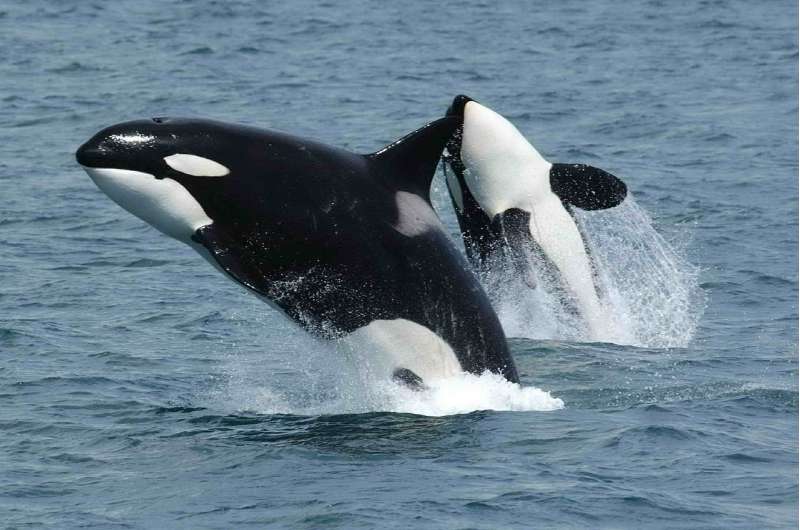Credit: CC0 Public Domain
Breaking an unprecedented run of days this summer without frequenting their home waters, J, K and even possibly L pod southern resident orcas were all seen Friday morning on the west side of San Juan Island.
This was the first summer since observations have been kept that the whales were not seen at all in June, and showed up only briefly one day in May.
"J and K and maybe some L off my house in Haro Strait now," Ken Balcomb wrote in an email to The Seattle Times just after 8 a.m. from his home. "The whales were off Neah Bay yesterday. Tide is ebbing. If (the tides) are bringing many fish they may push further north when the tide floods. Whales very spread out."
Balcomb, founding director of the Center for Whale Research, and other researchers had not been able to do their usual work with the orcas so far this summer as the whales continued to stay away, presumably searching for chinook salmon in a year in which chinook are scarce in the orcas' home waters.
It remains to be seen if the whales stick around, or only briefly visit as they did in May.
Lack of available, quality food is the biggest threat to the southern residents' survival, in addition to toxins in their environment, and noise and disturbance by boats. Underwater racket and disturbance by recreational boaters and commercial shipping make it harder for the whales to find what food is available.
Sorrel North, a Lopez island resident, is running an initiative to further restrict whale-watch tours directed at the southern residents in the waters around the San Juans.
North said she would deliver initiative petitions next week to the San Juan County auditor.
"I have 2,250 signatures in my house, and there are quite a few more out there on other islands still," she said in an email. "We had enough to put the initiative on the ballot 6 weeks in ... so the campaign has been a huge success."
The initiative would create a 650-yard vessel-free protected area around endangered southern-resident orcas while the whales are in San Juan County waters, with exemptions for law enforcement, research and treaty fishing boats.
Several Washington-based whale-watch companies have filed a lawsuit to block the measure from going to the voters, arguing that it unlawfully would preempt state authority.
©2019 The Seattle Times
Distributed by Tribune Content Agency, LLC.





















